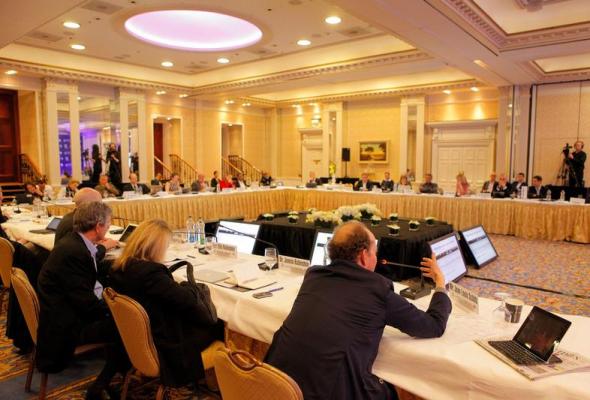DUBLIN ( MEDIA )
UN Broadband Commission for Digital Development has urged governments and international financing bodies to remove current barriers to broadband investment.
95 percent of telecommunications infrastructure is private sector-funded, but better incentives are urgently needed if investment is to expand in line with the coming exponential growth of connected users and so-called ‘Internet of Things’ data streams.
In the world’s 200 biggest cities, the number of connected devices is forecast to increase from an average of 400 devices per square kilometre to over 13,000 devices per square kilometre by 2016, said UN Broadband Commission for Digital Development, which met in Dublin this weekend.
Denis O’Brien, chairman of the Digicel Group, which provides mobile services in some of the world’s most challenging environments and disadvantaged countries, such as Haiti and Papua New Guinea, said: “To drive faster broadband roll-out, governments should lower spectrum license fees and advocated for the establishment of a champion’s league index that tracks best practice in broadband investment and deployment.”
Rwanda’s President Kagame said: “In Rwanda, the broadband model we have adopted is based on effective public private partnership, guided by what works on the ground. Rwanda is currently rolling out a nationwide 4G mobile broadband network through a public private partnership.”
The number of mobile phone subscriptions now roughly equals the world’s population of around seven billion, while over 2.7 billion people are online. Active mobile broadband subscriptions now exceed 2.1 billion – three times higher than the 700 million wireline broadband connections worldwide.
Most of this progress has taken place in the developing world, which has accounted for 90 percent of global net additions for mobile cellular and 82 percent of global net additions of new Internet users since early 2010, when the Commission was set up.
According to the State of Broadband 2013 Universalizing Broadband report, Ireland ranked 35th out of 183 economies for fixed broadband access, 19th out of 170 economies for mobile broadband access, and 31 out of 192 economies in terms of percentage of inhabitants using the Internet (79 percent).

